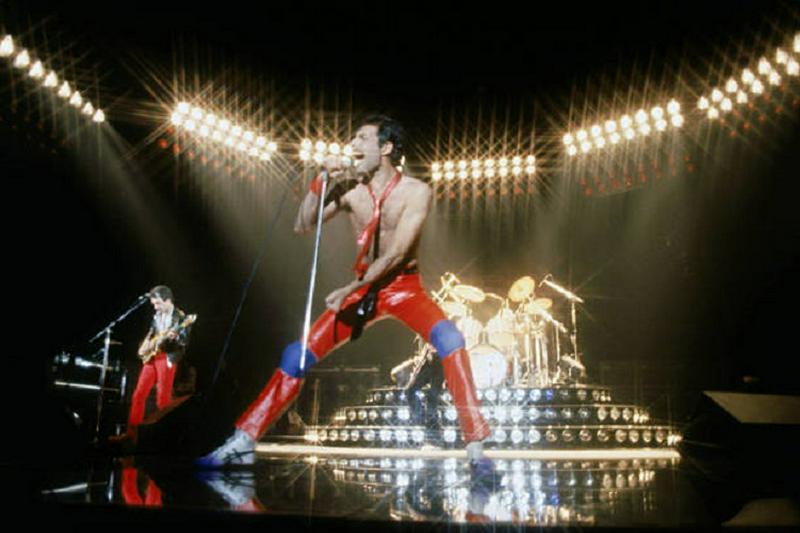The Story Behind The Song "Bohemian Rhapsody"
By | February 20, 2022

When Freddie Mercury was a student at Ealing Art College in the late ‘60s, he wrote down some ideas for a song on scraps of paper; his friend, Chris Smith, has stated that Mercury played parts of songs he was writing. One of those pieces was known as “The Cowboy Song,” and it had lyrics that found their way into “Bohemian Rhapsody,” specifically the line “Mama…just killed a man.” In the 1970s, he shared the bits and pieces with his bandmates, drumming on the piano keys and explaining what he would insert into the gaps. He told his bandmates that he thought he had enough for three songs but was considering combining it all to create a single long song. And that is what he did, creating a six-minute suite which is divided into several sections, including a ballad segment, a hard rock portion, an operatic passage, and the final, dark coda.

Before Recording Began
Queen guitarist Brian May has said that much of Queen’s music was written in the studio, but “Bohemian Rhapsody” was an exception as it “was all in Freddie’s mind” before recording started. In mid-1975, Queen rehearsed the song for the first time at Ridge Farm Studio in Surrey for a month; afterward, they spent three weeks perfecting it at Penrhos Court in Hertfordshire. They started to record it on August 24, 1975, at Rockfield Studios in Monmouth, Wales, but they also used four additional studios: Roundhouse, Sarm Studios, Scorpio Sound, and Wessex Sound Studios.

The Recording Process Took A Long Time
Recording the song took some time. They spent a week on the opera section alone. According to producer, Roy Thomas Baker, the middle section of the song began as a few seconds long, but it became longer and longer as they added more “Galileos” and added to the opera section. To record the grand chorale, Queen layered 160 tracks of vocal overdubs. Mercury overdubbed his own voice to get it to sound like a chorus. Because of the overdubbing, they wore out the tape. According to May, they held the tape up and “could see straight through it, the music had practically vanished.”
At first, Queen’s record company was reluctant to release the song as a single given its length; at the time, most singles were expected to run three minutes, and the band was told they would get no airplay. The buzz around the song began when Capital Radio DJ Kenny Everett played it 14 times in one weekend. “Bohemian Rhapsody” not only hit number one, but Mercury won an Ivor Novello Award for songwriting. It has continued to be popular and was inducted into the Grammy Hall of Fame in 2004. Readers of Rolling Stone named Mercury’s vocal performance on the song as the best in rock history. It is the third best-selling single of all-time in the UK, the world’s most-streamed song of the 20th Century, exceeded one billion streams on YouTube on July 21, 2019, and was certified diamond by the RIAA in 2021.

The Lyrics Include Several References
There are a number of theories about the meaning of the song. While “Bohemian Rhapsody” has a number of references that can provide a window into its meaning, Mercury refused to explain the lyrics, simply stating that it was about relationships. May has said that there was a lot of Mercury in the song, while Roger Taylor has said that the song is “fairly self-explanatory with just a bit of nonsense in the middle.” Reportedly, Mercury included “Galileo” in the lyrics because of May’s interest in astronomy. Scaramouche was a character in 16th-century commedia dell’arte shows; Figaro was a comic figure in two plays by Beaumarchais which later became operas; “Bismillah” means “in the name of Allah;” and the fandango is a lively dance which originated in Spain.

But What Does It All Mean?
Some have stated that the lyrics tell the story of a man who killed another and sold his soul to the devil. Others believe that they tell the story of a suicidal murderer who is being haunted by demons. Some believe that the lyrics depict the events leading up to an execution as the man who is about to be executed calls out to God when he says “Bismillah.” Mercury has also said that he thinks “people should just listen to it, think about it, and then make up their minds as to what it says to them.”
